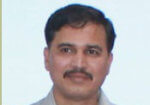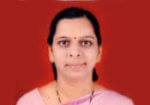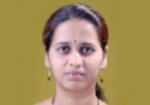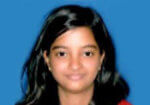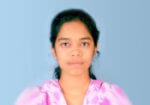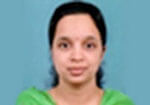| F.Y.B.Sc |
USMT 101 |
CALCULUS I |
- Students get knowledge of fundamental principles, tools and methods in Mathematics.
- Logical thinking abilities are developed.
|
| USMT 102 |
ALGEBRA I |
- Students get knowledge of numbers and operations on numbers.
- Students know the various mathematical ideas and tools.
- Students know how to use the mathematical tools by modeling, solving and interpreting.
|
| USMT 201 |
CALCULUS II |
- Students know the various mathematical ideas and tools
- Students know how to use the mathematical tools by modeling, solving and interpreting.
|
| USMT 202 |
LINEAR ALGEBRA |
- Students know the various mathematical ideas and tools
- Students know how to use the mathematical tools by modeling, solving and interpreting.
|
| S.Y.B.Sc. |
USMT 301 |
CALCULUS III |
- Students get the broad view of the subject and develop the mathematical tools.
- Students can think in abstract manner.
|
| USMT 302 |
ALGEBRA III |
- Abstract thinking abilities are developed.
- Students know the real life applications of mathematical concepts.
|
| USMT 303 |
INTRODUCTION TO COMPUTING & PROBLEM SOLVING- I |
- Students can deal with numerical problems very well.
- Numerical abilities are enhanced.
|
| USMT 401 |
CALCULUS IV |
- Students are exposed to broader mathematical concepts
- They develop the ability to use the mathematical tools for further studies of science and Mathematics.
|
| USMT 402 |
ORDINARY DIFFERENTIAL EQUATIONS |
- Students get exposed to the applied branch of Mathematics.
- They know the applications of differential equations in various other fields.
|
| USMT 403 |
INTRODUCTION TO COMPUTING & PROBLEM SOLVING- II |
- Students are exposed to programming for Mathematics.
- Computer related abilities are enhanced.
|
| T.Y.B.Sc |
USMT 501 |
INTEGRAL CALCULUS |
- Problem solving skills are enhanced.
- Mathematical modeling abilities are focused.
- Abstract thinking level is uplifted.
|
| USMT 502 |
LINEAR ALGEBRA |
- Knowledge of shapes and rotations reflections is made further concrete.
- Students can relate mathematics to real life.
|
| USMT 503 |
TOPOLOGY OF METRIC SPACES |
- Logical thinking is developed.
- Problem solving skill and mathematical modeling skill are enhanced.
|
| USMT 5C4 |
GRAPH THEORY |
- Students get known to the applied branch of Mathematics.
- Many real life problems are related to graphs and can be solved using these techniques.
|
| USACCA501 |
COMPUTER PROGRAMMING AND SYSTEM ANALYSIS I |
- Improved Logical Thinking
- Enhanced programming skills
|
| USMT 601 |
REAL AND COMPLEX ANALYSIS |
- Students know new number system and their properties.
- They are exposed to new field of the subject
|
| USMT 602 |
ALGEBRA |
- Problem solving skills are enhanced.
- Students get ideas of different algebraic structures.
|
| USMT 603 |
METRIC TOPOLOGY |
- Problem solving and mathematical modeling skills are enhanced.
- Different new concepts are made familiar to the students.
|
| USMT 6C4 |
GRAPH THEORY AND COMINATORICS |
- Different counting techniques and their uses are made known to the students.
- Students get knowledge about networking.
- Students are now able to apply their knowledge of the subject into real life.
|
| USACCA601 |
COMPUTER PROGRAMMING AND SYSTEM ANALYSIS II |
- Improved Logical Thinking
- Enhanced programming skills
|
M.Sc – I
Semester I |
PSMT 101 |
Algebra I |
- Use computational techniques and algebraic skills essential for the study of systems of linear equations, matrix algebra, vector spaces, eigenvalues and eigenvectors, orthogonality and diagonalization. (Computational and Algebraic Skills).
- Critically analyze and construct mathematical arguments that relate to the study of introductory linear algebra. (Proof and Reasoning).
|
| PSMT 102 |
Analysis I |
- Describe the real line as a complete, ordered field
- Determine the basic topological properties of subsets of the real numbers
- Use the definitions of convergence as they apply to sequences, series, and functions
- Determine the continuity, differentiability, and integrability of functions defined on subsets of the real line,Apply the Mean Value Theorem and the Fundamental Theorem of Calculus to problems in the context of real analysis
- Produce rigorous proofs of results that arise in the context of real analysis.
|
| PSMT 103 |
Complex Analysis |
- how complex numbers provide a satisfying extension of the real numbers
- Appreciate how throwing problems into a more general context may enlighten one about a specific context (e.g. solving real integrals by doing complex integration; Taylor series of a complex variable illuminating the relationship between real function that seem unrelated -- e.g. exponentials and trignometric functions);
- Learn techniques of complex analysis that make practical problems easy (e.g. graphical rotation and scaling as an example of complex multiplication)
|
| PSMT 104 |
DISCRETE MATHEMATICS |
- Solve counting problems by applying elementary counting techniques using the product and sum rules, permutations, combinations, the pigeon-hole principle, and binomial expansion.
- Solve discrete probability problems and use sets to solve problems in combinatorics and probability theory.
- Describe binary relations between two sets; determine if a binary relation is reflexive, symmetric, or transitive or is an equivalence relation; combine relations using set operations and composition.
|
| PSMT 105 |
Set Theory and Logic |
- Simplify and evaluate basic logic statements including compound statements, implications, inverses, converses, and contrapositives using truth tables and the properties of logic.
- Express a logic sentence in terms of predicates, quantifiers, and logical connectives
- Apply the operations of sets and use Venn diagrams to solve applied problems
- solve problems using the principle of inclusion-exclusion.
|
M.Sc – I
Sem II |
PSMT301 |
Algebra II |
The student is able to
- Demonstrate knowledge and Understanding of fundamental concepts including groups, subgroups , normal subgroups, homomorphism and isomorphism.
- Demonstrate knowledge and understanding of rings, fields and their properties.
- Apply algebraic ways of thinking
- Understand and prove fundamental results and solve algebraic problems using appropriate techniques.
|
| PSMT202 |
TOPOLOGY |
A student will be able to:
- Define and illustrate the concept of topological spaces and continuous functions.
- Define and illustrate the concept of product topology and quotient topology.
- Prove a selection of theorems concerning topological spaces, continuous functions, product topologies and quotient topologies.
- Define and illustrate the concept of the seperation axioms.
- Define connectedness and compactness and prove a selection of related theorems.
|
| PSMT203 |
ANALYSIS II |
A student will be able to:
- understand how Lebesgue measure on R is defined
- understand basic properties are measurable functions
- understand how measures may be used to construct integrals
- know the basic convergence theorems for the Lebesgue integral
- understand the relation between differentiation and Lebesgue integration.
|
| PSMT204 |
DIFFERENTIAL EQUATIONS |
A student will be able to:
- Learn how the differential equations are used to study various physical problems such as mass attached to spring and electric circuit problem etc.
- Obtain power series solutions of several important classes of ordinary differential equations including Bessel’s, Legendre, and Chebyshev’s differential equations.
- Understand the Sturm-Liouville problem and analyze stability of linear and non-linear systems.
- Solve the first-order linear differential equations.
|
| PSMT205 |
PROBABILITY THEORY |
A student will be able to
- demonstrate understanding the random variable, expectation, variance and distributions.
- explain the large sample properties of sample mean.
- understand the concept of the sampling distribution of a statistic, and in particular describe the behaviour of the sample mean
- analyse the correlated data and fit the linear regression models.
- demonstrate understanding the estimation of mean and variance and respective one sample and two-sample hypothesis tests.
|
M.Sc II-
Sem III |
PSMT301 |
Algebra III |
- Demonstrate understanding of the concepts of a module and their role in mathematics.
- Demonstrate familiarity with a range of examples of these structures.
- Demonstrate familiarity with a range of examples of these structures.
- Explain the structure theorem for finitely generated modules over a principal ring and its applications to abelian groups and matrices.
- Demonstrate skills in communicating mathematics orally and in writing.
|
| PSMT302 |
Functional Analysis |
- Verify the axioms of normed vector spaces, Banach spaces and Hilbert spaces in specific examples, applying relevant tests for completeness or the existence of an inner product
- Compute the norms and spectra of (certain classes of) operators
- Use completeness arguments to produce existence proofs for operators and linear functionals with desired properties
- Establish well-known isometric isomorphisms between sequence spaces and their dual spaces.
|
| PSMT303 |
Differential Geometry |
- The course aims to give a proper background in differential geometry for applications in theoretical physics and for further studies in geometry/geometrical analysis
- The course introduces the fundamentals of differential geometry primarily by focussing on the theory of curves and surfaces in three space. The theory of curves studies global properties of curves such as the four vertex theorem.
- The theory of surfaces introduces the fundamental quadratic forms of a surface, intrinsic and extrinsic geometry of surfaces.
|
| PSMT304 |
Numerical Analysis |
- Derive appropriate numerical methods to solve algebraic and transcendental equations
- Develop appropriate numerical methods to approximate a function
- Develop appropriate numerical methods to solve a differential equation
- Derive appropriate numerical methods to evaluate a derivative at a value
- Derive appropriate numerical methods to solve a linear system of equations
- Perform an error analysis for various numerical methods
- Prove results for various numerical root finding methods
- Derive appropriate numerical methods to calculate a definite integral
- Code various numerical methods in a modern computer language
|
| PSMT305 |
Graph Theory |
- Demonstrate knowledge of the syllabus material
- Write precise and accurate mathematical definitions of objects in graph theory
- Use mathematical definitions to identify and construct examples and to distinguish examples from non-examples
- Validate and critically assess a mathematical proof
- Use a combination of theoretical knowledge and independent mathematical thinking in creative investigation of questions in graph theory
- Reason from definitions to construct mathematical proofs
|
M.Sc IV
sem IV |
PSMT401 |
Field Theory |
- Explain the fundamental concepts of field extensions and Galois theory and their role in Modern mathematics
- Demonstrate accurate and efficient use of field extensions and Galois theory
- Demonstrate capacity for mathematical reasoning through analyzing, proving and explaining concepts from field extensions and Galois theory
|
| PSMT402 |
Fourier Analysis |
- In-depth knowledge of Fourier analysis and its applications to problems in engineering.
- An ability to communicate reasoned arguments of a mathematical nature in both written and oral form.
- An ability to read and construct rigorous mathematical arguments.
|
| PSMT403 |
Calculus on Manifolds |
- The student having seen basic analysis and linear algebra is expected to learn how these topics play a significant role, first in multi-variate calculus which then naturally leads to calculus on manifolds.
- The intimate relationship between analysis and geometry should become apparent at the end of this course.
|
| PSMT404 |
Linear Programming, Optimisation |
- Identify and express a decision problem in mathematical form and solve it graphically and by Simplex method
- Recognize and formulate transportation, assignment problems and drive their optimal solution
- Identify parameters that will influence the optimal solution of an LP problem and derive feasible solution using a technique of O R.
- Feasibility study for solving an optimization problem
|
| PSMT404 |
Linear Programming, Optimisation |
- Identify and express a decision problem in mathematical form and solve it graphically and by Simplex method
- Recognize and formulate transportation, assignment problems and drive their optimal solution
- Identify parameters that will influence the optimal solution of an LP problem and derive feasible solution using a technique of O R.
- Feasibility study for solving an optimization problem
|
| PSMT405 |
Project Course |
- Use mathematical ideas to model real-world problems
- Communicate mathematical ideas with others
- Utilize technology to address mathematical ideas
|



